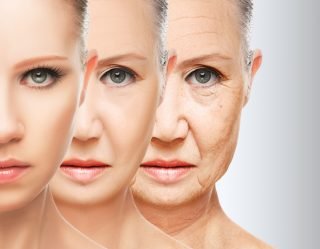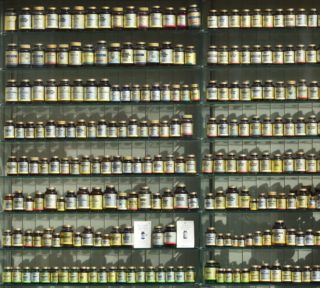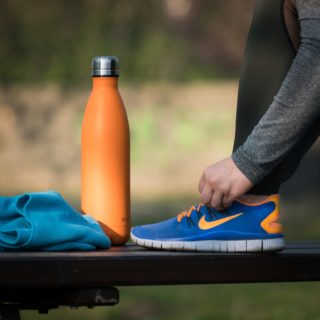When it comes to wellness and anti-aging, one word that pops up is collagen. An expected amount of $122 million worth of products that include collagen is consumed by American consumers. This number is increasing by up to 30% annually.
Collagen is a protein that our body has in abundance. The protein can be found in our bones, muscle, skin and tendons. It provides strength, rigidity and resistance in our body. This is the reason for our bouncy skin and resilient joints in our youth. However, as we enter our 20s, we begin to lose out naturally on protein. Approximately between 1 and 1.5% annually. Along with that, we also start to lose out on the benefits of a collagen rich body concurrently.
Collagen Stimulating Products
For instance, new ranges of fillers for the skin have become available and are injected just under the dermis to stimulate new collagen formation. This has proved to be a very effective method to re-densify the skin and treat wrinkling. Fillers that are very liquid (referred to as low viscosity hyaluronic acid fillers) which come in specific types. However, the majority of fillers used is still for deep volumization and not for skin. The fact is that fillers are essential if you are looking to soften lines, as no skin care product is able to treat collagen loss. Fillers preserve the quality and quantity of fat pads.
Does It Work?

The renewal of collagen as we lose it has always seemed like a very simple and brilliant theory. The science of it, however, continues to be wildly spread and has many translations. Given that collagen is a natural substance that our body produces, it is imaginable that it can be extremely difficult to increase the right types and proportions of collagen in your body to gain all the amazing benefits.
Most of the scientific experiments conducted in support of collagen supplements working have been conducted on mice, rats and even pigs but not yet humans. This, of course, results in major questions being asked as to how effective collagen replacement products are and whether they are able to work.
The demand for collagen for anti-aging purposes remains persistent, whilst the science is still in its infancy as are the regulations on the products. Still, the business of collagen keeps growing and growing, with roughly over 300 products available off the shelf. However, the medical community is not all on the same page. This, means giving a definitive answer to whether collagen replacement products work, is rather complicated.
Collagen taken through supplements has no guaranteed way of making it to your skin. What is certain though is that consuming foods that are rich in protein assists your body in producing amino acids. The body in turn uses this to synthesize collagen. However, if your diet does not feature enough vitamin C and/or iron this can disrupt the natural production of collagen. Amino acids have therefore meant big business for companies. There are more than a dozen types of collagen replacement products and supplements, each composed of different “peptides” or amino acids. These products, depending on the nature of the remaining ingredients in the product, may help you regenerate collagen.
Types of products that include collagen
Collagen comes in different types. There are the five most common types: type I, II, III, V, X. Each serves a different purpose in the body.
Most people are consuming the wrong types of collagen, and see little to no benefit at all. It’s no wonder so many people look and feel more OLDER than their actual age! First of all, with collagen it can be extremely difficult to increase the right type and proportions of collagen in your body to gain all the amazing benefits.You need five different types of collagen in particular to experience powerful results, yet bone broth and so many of the supplements, like gelatin and collagen powders, only provide you one or two types at most.
- I: skin, tendon, vasculature, organs, bone (main component of the organic part of bone)
- II: cartilage (main collagenous component of cartilage)
- III: reticulate (main component of reticular fibers), commonly found alongside type I
- IV: forms basal lamina, the epithelium-secreted layer of the basement membrane
- V: cell surfaces, hair, and placenta
Products typically contain either chicken or bovine collagen. Occasionally added are vitamins and minerals. Usually added are Flow agents, anti-caking agents and sometimes flavorants. In an attempt to further make products more appealing, many collagen products are incredibly high in sugar.
Can They Work?
Different types of collagen, as previously listed, come from skin and tendons as opposed to cartilage. You can now get tasteless collagen protein food products that contain all the necessary ingredients in order to capture collagen.
Types I and II are really important types of collagen to get to know of. These are types to want in your collagen products. Both collagen types I and II are produced by osteoblasts and fibroblasts, which are cells located in our connective tissues and cells that create bones respectively.
 Types I and II are more often than not grouped together. 90% of the total collagen in our bodies contains these two types. Plus, these two types of collagen serve plentiful purposes. They are of great importance when it comes to the maintenance of the skin, nails, bones, hair, and muscles.
Types I and II are more often than not grouped together. 90% of the total collagen in our bodies contains these two types. Plus, these two types of collagen serve plentiful purposes. They are of great importance when it comes to the maintenance of the skin, nails, bones, hair, and muscles.
“Collagen supplements only work if the molecular size and hydrolysing process makes it possible for the body to absorb it. The stomach acidity also plays a role in the bio-availaibility of the product. Therefore, it is necessary for a product to show effectiveness with their own studies and one cannot rely on the general studies of how effective collagen supplementation is. Each product needs to prove their own effectiveness as this is really important with collagen supplements.
What To Look For
In order to correctly and effectively obtain collagen, a close ingredient watch is absolutely necessary. Above which, when looking for collagen replacement in the skin to fight signs of aging by means of fine lines and wrinkling, look for companies that get their bones and tissues from cage-free, free-range, and antibiotic-free sources. In addition, companies that have conducted their own research for their own product containing
One of the main issues with most supplements that claim to help completely replace collagen in the body – and reverse aging, strengthen joints, promote and improve hair growth and the general appearance of hair – don’t always contain the types of collagen that do so. In fact, a lot of these off the shelf and well advertised supplements do not even contain complete proteins. This means that taking these supplements, irrespective of how religiously you take them, will not provide you with the full benefits of taking collagen that complete proteins are able to provide.What’s more, most collagen and bone broth powders don’t dissolve well in cold or room temperature liquids, leaving a coagulated, clumpy mess at the bottom of your glass that’s unpleasant to drink.
Products that contain the type I collagen are also key. This type targets the skin, tendon, vasculature, organs, and bone. Type I works well at replenishing the skin. Clinical trials in patients who supplemented with Type I collagen showed enhanced skin hydration and firmness as well as a decrease in wrinkles.

On The Go Dosage…
Perhaps one of the latest crazes on the market: Collagen water. The product is making a major splash with many established health companies and food chains hoping on board. Collagen water comes in many subtle flavors. According to Collagen Water, “The amino-acid content of hydrolysed collagen is the same as collagen. Hydrolysed Collagen contains 20 amino acids, including 8 out of 9 essential amino-acids (there is no tryptophan). The predominant amino-acids in hydrolysed collagen are: glycine, proline and hydroxyproline, which represent around 50% of the total amino acid content. Glycine and proline concentration is 20 times higher than in any other proteins.” This is a good way to get your daily collagen in take whilst remaining hydrated.
For Your Morning Cups Of Tea Or Coffee…
Swapping out your milk with collagen infused milk powders and milk collagen lattes. To add sophistication and convenience, non-diary options are also available. Just pop  them in your morning tea or coffee. Most of these products contain bone broth (a natural source of collagen). This key ingredient will therefore n0t only help achieve youthful benefits of the protein, but also assist with elasticity, as well as nail and hair strength. The downside to the majority of these powders is that they are incredibly high in sugar.
them in your morning tea or coffee. Most of these products contain bone broth (a natural source of collagen). This key ingredient will therefore n0t only help achieve youthful benefits of the protein, but also assist with elasticity, as well as nail and hair strength. The downside to the majority of these powders is that they are incredibly high in sugar.
Other Ways To Include Collagen..
Fish oil in the form of capsules or liquid, as well as zinc. Vitamins A, C and E are also great for collagen promotion. Hyaluronic acid is a compound that is incredibly rich in collagen. Foods such as beans, root vegetables, and soy that are incredibly rich in amino acids all contain hyaluronic acid.
Aside from changing your diet – following a healthy skincare routine that includes cleansing, exfoliating and moisturizing can help to protect your skin against pollutants. Wearing sunscreen daily can help protect your skin’s collagen levels. UVA radiation penetrates deep into the dermis, the skin’s deepest layer, and causes skin cancers, premature aging and wrinkling, also known as photo aging, and suppression of the immune system.
Getting enough sleep is important when it comes to your body’s collagen production. Sleep is the time the body uses to restore and repair itself, and if we do not get enough sleep – for at least 7 to 8 hours – it limits the body’s capability to produce collagen. Lack of sleep can increase your stress levels which can lead to skin problems such as the breakdown of collagen.



![women [longevity live]](https://longevitylive.com/wp-content/uploads/2020/01/photo-of-women-walking-down-the-street-1116984-100x100.jpg)










